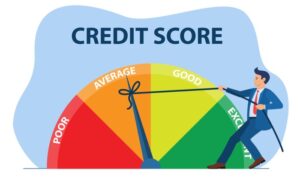Personal Finance for Freelancers sets the stage for this enthralling narrative, offering readers a glimpse into a story that is rich in detail with an American high school hip style and brimming with originality from the outset.
Freelancers navigate a unique financial landscape, balancing irregular income, managing expenses, and planning for the future. This guide dives into the essentials of personal finance tailored specifically for the freelance lifestyle.
Introduction to Personal Finance for Freelancers
Personal finance for freelancers refers to the management of one’s financial resources as an independent contractor or self-employed individual. It involves budgeting, saving, investing, and planning for the future without the security of a traditional steady income.
The Importance of Managing Finances as a Freelancer
Managing finances as a freelancer is crucial for maintaining financial stability, achieving long-term goals, and preparing for unexpected expenses. Without a regular paycheck, freelancers must be proactive in budgeting and saving to ensure they can cover both business and personal expenses.
Unique Financial Challenges Freelancers Face
- Irregular Income: Freelancers often experience fluctuations in income, making it challenging to budget and plan for expenses.
- Self-Employment Taxes: Freelancers are responsible for paying self-employment taxes, which can be higher than traditional payroll taxes.
- Unpredictable Workload: Freelancers may face periods of high demand followed by slow periods, requiring careful financial planning to weather income fluctuations.
- Lack of Employee Benefits: Freelancers do not receive benefits such as health insurance, retirement contributions, or paid time off, necessitating additional financial planning for these expenses.
Budgeting Strategies for Freelancers
Budgeting is crucial for freelancers to manage their finances effectively, especially when dealing with irregular income streams. Here are some budgeting strategies tailored for freelancers:
1. Percentage-Based Budgeting
Using a percentage-based budgeting approach can help freelancers allocate a certain percentage of their income to different categories such as savings, expenses, and investments. For example, setting aside 50% for necessities, 30% for wants, and 20% for savings and debt payments can provide a clear structure for managing finances.
2. Zero-Based Budgeting
Zero-based budgeting involves assigning every dollar earned a specific purpose, ensuring that all income is accounted for at the end of each month. This method can help freelancers track their spending closely and avoid overspending.
3. Rolling Budgets
Freelancers can benefit from using rolling budgets, which involve adjusting the budget regularly based on changing income levels. By reassessing their budget on a monthly or quarterly basis, freelancers can adapt to fluctuations in their income and expenses.
4. Creating an Emergency Fund
Setting up an emergency fund is essential for freelancers to cover unexpected expenses or periods of low income. Aim to save enough to cover at least three to six months’ worth of living expenses to provide a financial safety net.
5. Tracking Expenses Effectively
Freelancers should utilize budgeting apps or spreadsheets to track their expenses accurately. Categorizing expenses, setting spending limits, and regularly reviewing financial transactions can help freelancers stay on top of their budget and make informed financial decisions.
Income Management Tips for Freelancers

When it comes to managing income as a freelancer, there are several strategies that can help you maintain financial stability and success in your business.
Importance of Diversifying Income Sources
Diversifying your income sources as a freelancer is crucial for creating a more stable and sustainable financial situation. Relying on only one client or one type of project can leave you vulnerable to fluctuations in the market or changes in client needs. By diversifying your income sources, you can spread out your risk and ensure a more consistent flow of income.
- Offer a variety of services within your niche to attract different types of clients.
- Explore passive income opportunities such as creating digital products or online courses.
- Build relationships with multiple clients to reduce dependence on any single source of income.
Setting Rates and Pricing Services
Setting the right rates and pricing your services appropriately is essential for freelancers to ensure they are compensated fairly for their work.
- Research industry standards and competitor rates to determine a competitive pricing strategy.
- Consider your level of expertise, experience, and the value you provide to clients when setting rates.
- Be transparent with clients about your pricing structure and the value they will receive in return.
Negotiating Better Payment Terms
Negotiating payment terms can help freelancers improve their cash flow and ensure timely payment for their services.
- Set clear payment terms in your contracts, including deadlines and payment schedules.
- Offer incentives for early payment or penalties for late payments to encourage clients to pay on time.
- Communicate openly with clients about payment expectations and address any issues promptly to avoid payment delays.
Tax Planning and Compliance for Freelancers
As a freelancer, it’s crucial to understand the key tax considerations to effectively manage your finances and stay compliant with the law.
Deductions and Credits for Freelancers
- Freelancers can deduct business expenses such as office supplies, equipment, travel, and marketing costs. Keep detailed records to support these deductions.
- Take advantage of tax credits available to freelancers, such as the Earned Income Tax Credit or the Child and Dependent Care Credit.
- Consider contributing to a retirement account like a SEP IRA or Solo 401(k) to reduce taxable income and save for the future.
Staying Compliant with Tax Laws
- Keep accurate records of income and expenses throughout the year to ensure you can report your earnings correctly come tax time.
- Understand your tax obligations, including making estimated quarterly tax payments to avoid penalties for underpayment.
- Consider working with a tax professional who specializes in freelance taxes to ensure you are maximizing deductions and credits while staying compliant with the law.
Retirement Planning for Freelancers
As a freelancer, planning for retirement is crucial to ensure financial stability in the future. Unlike traditional employees who may have employer-sponsored retirement plans, freelancers need to take proactive steps to secure their financial future.
Retirement Savings Options for Freelancers
- Individual Retirement Accounts (IRAs): Freelancers can open a traditional or Roth IRA to save for retirement. These accounts offer tax advantages and flexibility in investment options.
- Solo 401(k): Self-employed individuals can opt for a Solo 401(k) plan, which allows them to make contributions both as an employer and an employee, maximizing retirement savings.
- Simplified Employee Pension (SEP) IRA: Freelancers with fluctuating incomes can consider a SEP IRA, which offers higher contribution limits and flexibility in contributions based on income levels.
Importance of Starting a Retirement Fund Early
Starting a retirement fund early as a freelancer is essential due to the power of compounding. By investing early, freelancers can benefit from the growth of their investments over time, potentially leading to a more substantial retirement nest egg.
Tips for Retirement Planning without Traditional Employer Benefits
- Set up automatic contributions: Establish automatic transfers to your retirement account to ensure consistent savings without relying on employer contributions.
- Create a budget: Develop a budget that prioritizes retirement savings, even during months with lower income, to stay on track with your retirement goals.
- Diversify investments: Spread your retirement savings across different asset classes to mitigate risk and maximize potential returns over the long term.
Emergency Fund and Insurance for Freelancers
Having an emergency fund and the right insurance coverage is crucial for freelancers to protect themselves in times of unexpected financial challenges.
Types of Insurance for Freelancers
- Health Insurance: Covers medical expenses and ensures access to quality healthcare.
- Disability Insurance: Provides income replacement if you are unable to work due to a disability.
- Liability Insurance: Protects you from legal claims and lawsuits related to your work.
- Life Insurance: Offers financial protection for your loved ones in the event of your death.
Building an Emergency Fund
Freelancers can build an emergency fund by following these tips:
- Set a specific goal: Aim to save at least 3-6 months’ worth of expenses.
- Automate savings: Set up automatic transfers to your emergency fund account.
- Cut unnecessary expenses: Review your budget and eliminate non-essential spending.
- Side hustle: Consider taking on additional freelance projects to boost your emergency savings.
Investment Strategies for Freelancers: Personal Finance For Freelancers

Investing is crucial for freelancers to grow their wealth and secure their financial future. Despite having a variable income, freelancers can still take advantage of various investment opportunities to build a diversified portfolio and achieve their financial goals.
Diversification
- Invest in a mix of assets such as stocks, bonds, real estate, and mutual funds to spread risk.
- Consider alternative investments like peer-to-peer lending or crowdfunding platforms for additional diversification.
Long-Term Focus
- Focus on long-term investment goals rather than trying to time the market with short-term trading.
- Utilize tax-advantaged retirement accounts like IRAs or Solo 401(k)s to save for retirement.
Low-Cost Investments, Personal Finance for Freelancers
- Look for low-cost index funds or exchange-traded funds (ETFs) to minimize fees and expenses.
- Consider robo-advisors for automated, low-cost investment management tailored to your risk tolerance.
Emergency Fund Allocation
- Prioritize building an emergency fund with at least 3-6 months’ worth of living expenses before investing in riskier assets.
- Allocate a portion of your investment portfolio to liquid assets for quick access in case of unforeseen financial needs.



